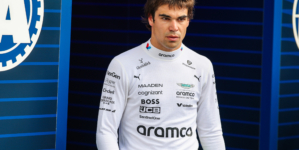-
Patti LuPone Apologizes for Comments About Audra McDonald and Kecia Lewis - 27 mins ago
-
Ncuti Gatwa Leaves Doctor Who as Billie Piper Takes Lead Role - 28 mins ago
-
Aston Martin driver Lance Stroll Withdraws from Spanish Grand Prix After Reaggravated Injury - about 1 hour ago
-
Patricia Krenwinkel, Former Member of Manson Family, Is Recommended for Parole - about 1 hour ago
-
Health Officials Confirm Virus in Popular Vacation Destination - 2 hours ago
-
Valerie Mahaffey, Actress in “Northern Exposure” and “Desperate Housewives,” Dies at 71 - 2 hours ago
-
FanDuel Promo Code: Claim $200 New User Bonus for Knicks-Pacers Game 6 - 2 hours ago
-
U.S. Sends Iran Proposal on Nuclear Deal, Amid Reports of Uranium Enrichment Ramp-Up - 3 hours ago
-
Dodgers’ Dave Roberts Reveals More Details on Injury to Mookie Betts - 3 hours ago
-
Former Joe Flacco Teammate Blasts Browns Veteran Over QB Situation - 3 hours ago
Kurdish Insurgent Group Declares Cease-Fire in Conflict With Turkey
The Kurdish guerrilla group that has been fighting a long-running insurgency against Turkey declared a cease-fire on Saturday, days after a call from its jailed leader to disarm and disband the organization which raised hopes of ending a conflict that has killed tens of thousands of people over four decades.
The Kurdistan Workers’ Party, or P.K.K., said the cease-fire would begin immediately. It also called for Abdullah Ocalan, the P.K.K.’s founder and leader who has been in a Turkish prison for a quarter-century, to be freed so he can oversee the group’s dissolution.
The P.K.K. announcement came two days after Mr. Ocalan said that the group had outlived its life-span and should dissolve itself, a rare message from a leader with broad influence over Kurdish fighters in Turkey, but also around the region, including in Syria and Iraq.
The P.K.K. said in a statement carried by Firat News Agency, a P.K.K.-linked news site, that “none of our forces will take armed action unless attacked.”
If the P.K.K. does cease fighting, lay down its arms and disband, it would resolve a major domestic security threat and mark a political victory for Turkey’s president, Recep Tayyip Erdogan. But there are still many unanswered questions about who would monitor a truce or what would happen to fighters who lay down their arms — or whether the government has offered the Kurdish fighters anything in return.
The Turkish government did not immediately comment on the P.K.K. statement or on the group’s call for Mr. Ocalan to be released.
Mr. Ocalan made his appeal after a series of talks between the main pro-Kurdish party in Turkey and Turkish officials. Mr. Erdogan said in January that the government had offered the P.K.K. no concessions.
The P.K.K. began as a secessionist group that sought to create an independent state for Turkey’s Kurdish minority, but more recently it has said it was seeking greater rights for Kurds inside Turkey.
Many Turks see Mr. Ocalan as one of the country’s biggest enemies. Turkey, the United States and other countries classify Mr. Ocalan as a terrorist and the P.K.K. as terror group for its attacks that have killed Turkish security forces and civilians.
Mr. Ocalan was convicted in 1999 of leading an armed terrorist group.
In recent years, Turkey’s military has degraded the P.K.K.’s fighting abilities, which analysts say may have contributed to its willingness to stop fighting.














